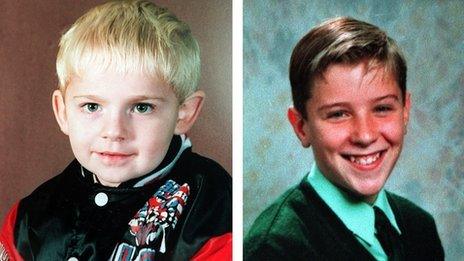IRA survivors and families speak out on McGuinness:
- Published

Alan McBride's wife, Sharon, was killed in the Shankill bombing in Belfast in October 1993
Martin McGuinness lived a life of two halves.
Those who lost loved ones, or were injured in the IRA's bombing campaigns, harbour painful memories.
But some say the pain has been soothed by McGuinness' recent legacy and his willingness to compromise for peace in Northern Ireland.
"Martin McGuinness' fingerprints were all over the Troubles, but they were also all over the peace process," said a man who lost his wife to an IRA bomb.
Alan McBride's wife, Sharon, was one of 10 people who died in the Shankill bomb, Belfast, in October 1993., external
Others who suffered at the hands of the IRA were less forgiving.
Lord Tebbit said Martin McGuinness was a coward.
Lord Tebbit said Martin McGuinness was "a coward, a murderer"
"The reason he suddenly became a man of peace, was that he was desperately afraid that he was going to be arrested and charged with a number of murders," he said.
Lord Tebbit was one of those injured by an IRA bomb in Brighton's Grand Hotel in 1984. His wife was left paralysed in the attack.
"It's not merely that these creatures crippled my wife, but they also murdered five of my close friends.
"I only hope that his death will help to bring some sort of closure to those families and friends of those whose murders he accomplished."
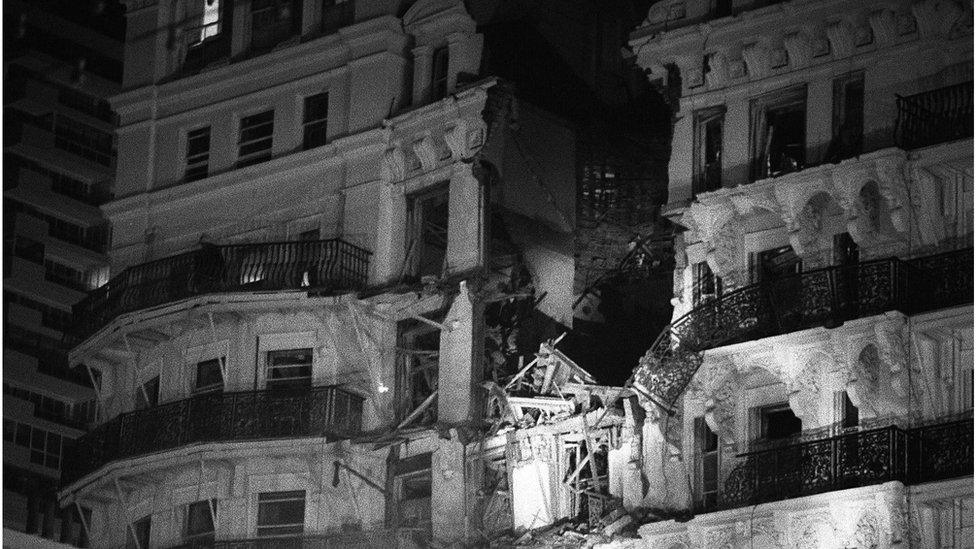
Jo Berry lost her father in the Brighton bombing, but she saw Martin McGuinness as key to the peace process
However, Jo Berry, whose father was killed in the Brighton bombing, does not share that view.
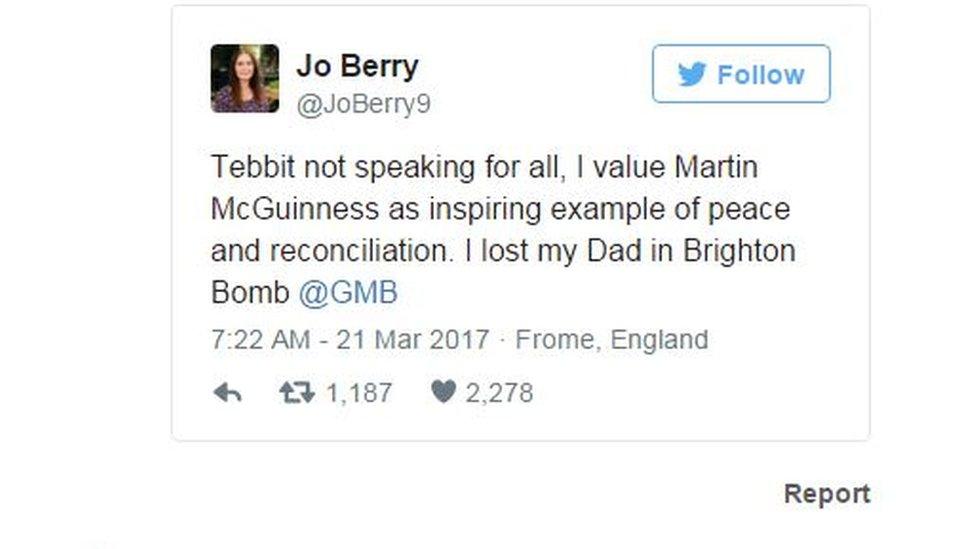
"For me it's about empathy. My passion is how we create peace - moving from blame to empathy," she said.
"Martin McGuinness' work was absolutely essential in securing peace.
Colin Parry: "I don't forgive Martin. I don't forgive the IRA"
"It's because people like him have sat down with their enemies that we have peace today."
Ann Travers' sister, Mary, died in an IRA gun attack outside a church in south Belfast in 1984. The target of the ambush was their father, Tom, a resident magistrate, who was badly injured in the shooting.
She said on hearing of Mr McGuinness' death: "My immediate thoughts were sadness for the families of Enniskillen and Claudy, Patsy Gillespie's widow and Frank Hegarty's family and Joanne Mathers' husband and children, because I feel that they now won't get any of the answers that they so richly deserve.
"There is a severe affliction of Troubles amnesia. Martin McGuinness was part of a terrorist organisation which catastrophically destroyed and changed lives forever."
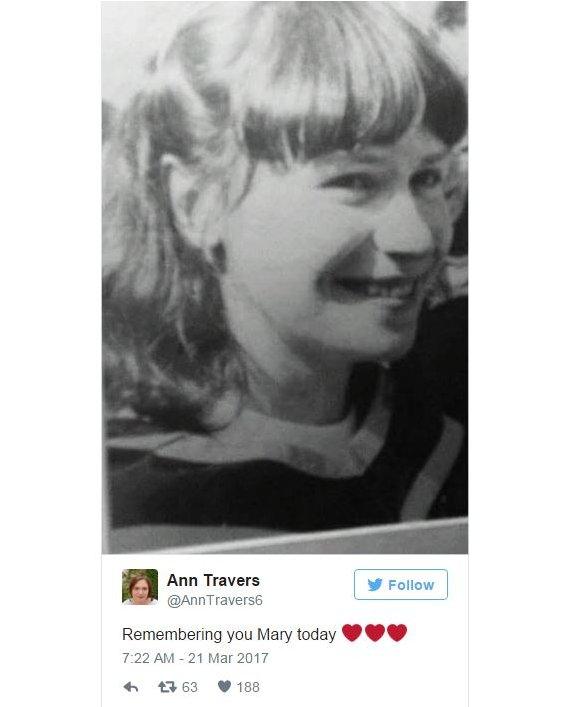
She said that he later moved to a political agenda could only be welcomed, "but I'm just filled with sadness that he decided to pick up the gun in the first place".
She added: "Up until Martin McGuinness died he still justified the actions of the IRA, he was on record as saying that he lived by the green book of the IRA, his loyalty would be to the IRA until the day he died and so it was.
"So I see that, unlike Nelson Mandela, who whenever he left prison condemned all murder, from every side, including his own and said none of it was ever justified at all, Martin McGuinness was never able to do that."
Alan McBride took a different stance.
Despite the bombing that robbed him of his wife, he said the death of the former deputy first minister was "a huge loss" and that he had shown "courage and leadership," in the peace process.
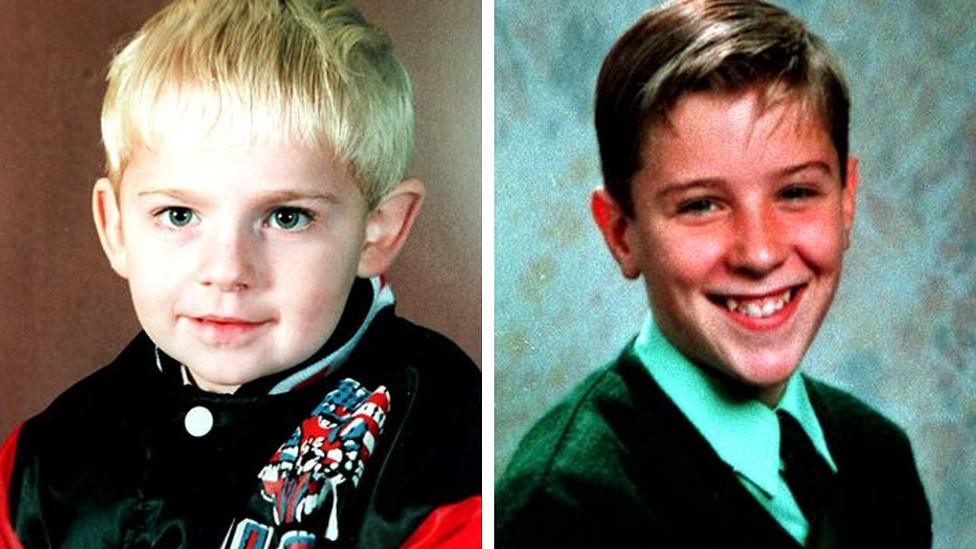
Johnathan Ball, three, and Tim Parry, 12, died in the Warrington bombs
Colin Parry's 12-year-old son, Tim, was killed when two IRA bombs exploded in Warrington in 1993.
"I don't forgive Martin nor the IRA and nor does my wife and children," he said.
But he added that he found Mr McGuinness "an easy and pleasant man to talk to".
Martin McGuinness 'entered government an unrepentant terrorist'
"He was a man who, I believe, was sincere in his desire for peace and to maintain the peace process at all costs," he said.
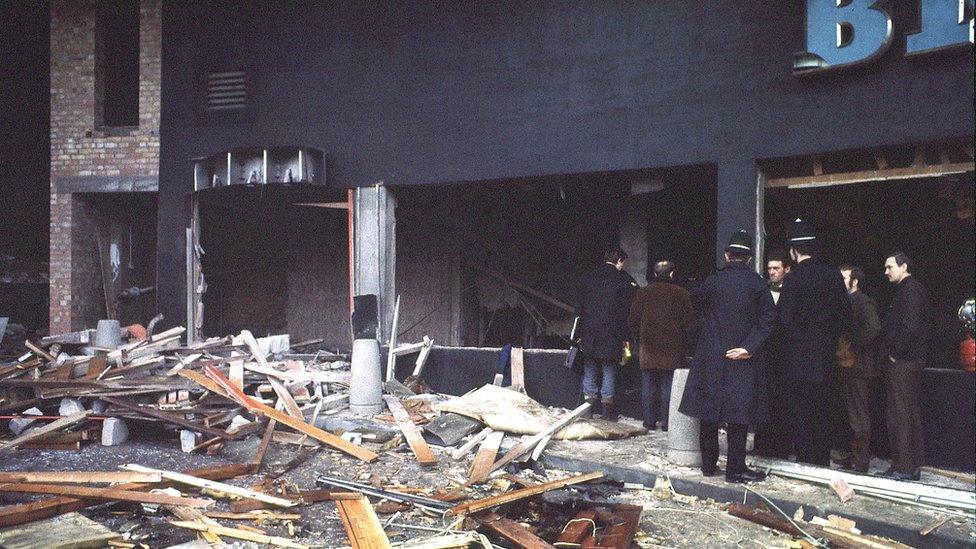
Twenty-one people were killed and 182 injured when IRA bombs exploded at two city centre pubs on the night of 21 November 1974
"He deserves great credit for his recent life - rather than his earlier life for which I don't think anything in his recent life can atone.
"He was still a brave man who put himself at some risk within some elements of his own community in Northern Ireland."
Julie Hambleton, whose sister was among 21 people killed in the 1974 Birmingham pub bombings, feels that a chance to get to the truth about what happened that day has disappeared.
"With his death, the truth is buried," she said.
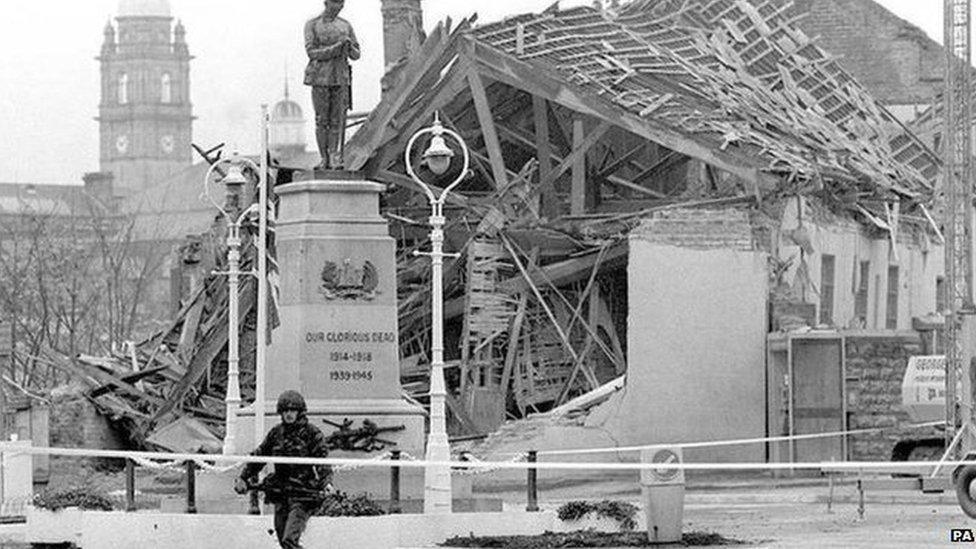
Enniskillen in the aftermath of the Poppy Day bombing
Stephen Gault whose father, Samuel ,was one of 11 people killed in the 1987 Enniskillen "Poppy Day" bomb, said he would remember Mr McGuinness only as a "terrorist".
"If he had been repentant, my thoughts might have been slightly different," he said.
"But he took to his grave, proud that he served in the IRA. There was no remorse or repentance from him even up to his death."
That view was echoed by Margaret Veitch, whose parents were also killed in Enniskillen.
"They died at the hands of the IRA in Enniskillen and it'll be 30 years and nobody has ever been brought to justice. Martin McGuinness was implicated in it and he'll go to his grave with secrets.
"I'm really sad today because of all of the innocent victims that will never get justice."
Kenny Donaldson, a spokesperson for campaign group Innocent Victims United, added that victims had been "denied accountability" by Mr McGuinness.
"Surely, if there was a conversion within him, that if he was genuinely understanding of the futility of the past, then he needed to account for what those individuals are going through."
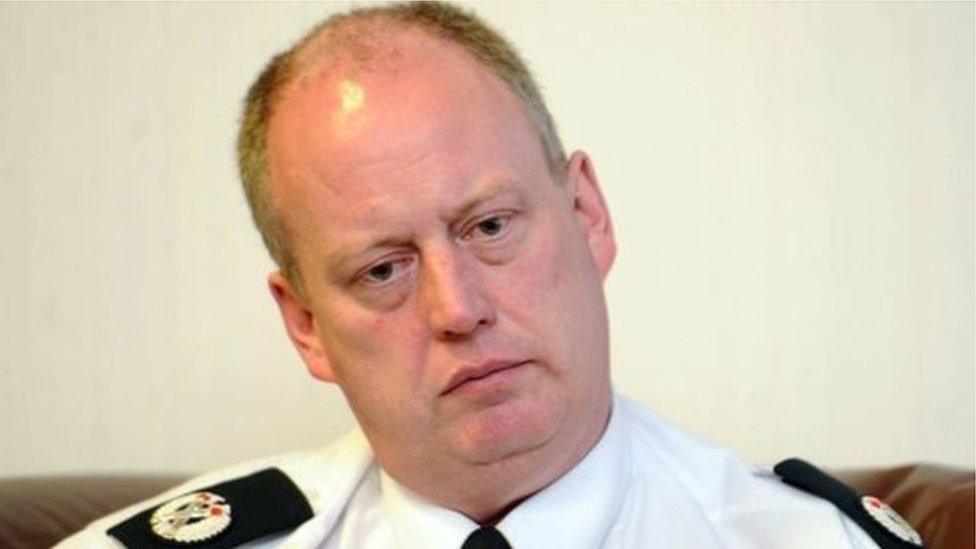
The chief constable said Martin McGuinness believed in a better future
PSNI Chief Constable George Hamilton presides over a police service that suffered heavy losses in IRA attacks during the Troubles in Northern Ireland.
He said society had suffered grievously and many police officers and their families were among those affected.
"Martin McGuinness believed in a better future for our community; and this is a vision shared by policing," he said.
"Martin's journey in life challenges all of us who care about the future; to be prepared to change; to demonstrate leadership; and to work to understand the world, not just from our own perspective, but from the perspectives of everyone in our community."
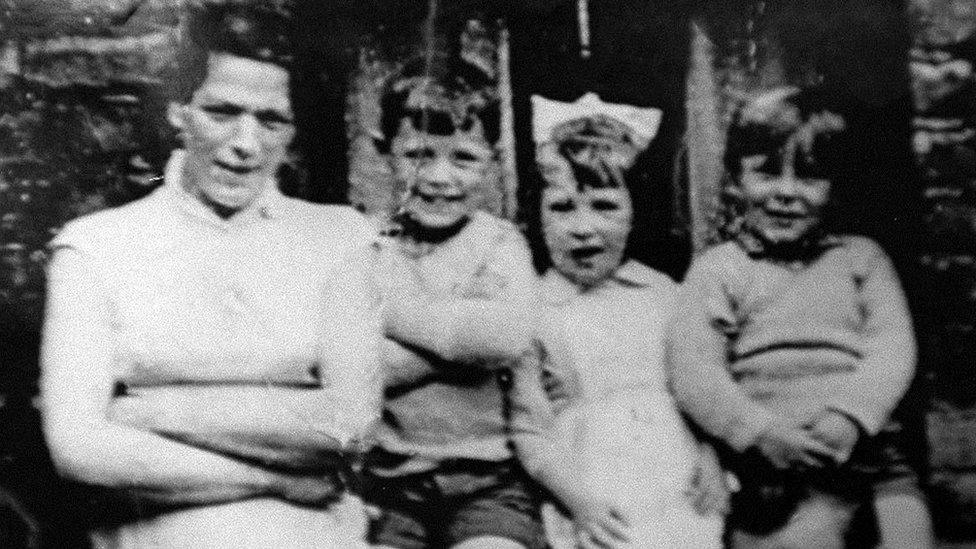
Jean McConville with three of her children before she was abducted by the IRA in 1972
Michael McConville is the son of Jean McConville, one of the Disappeared - she was taken from her home by the IRA in 1972, murdered and secretly buried. Her body was found on a beach in the Republic of Ireland in 2003.
"The IRA came to our flat in Divis flats and came and took my mother out," he said.
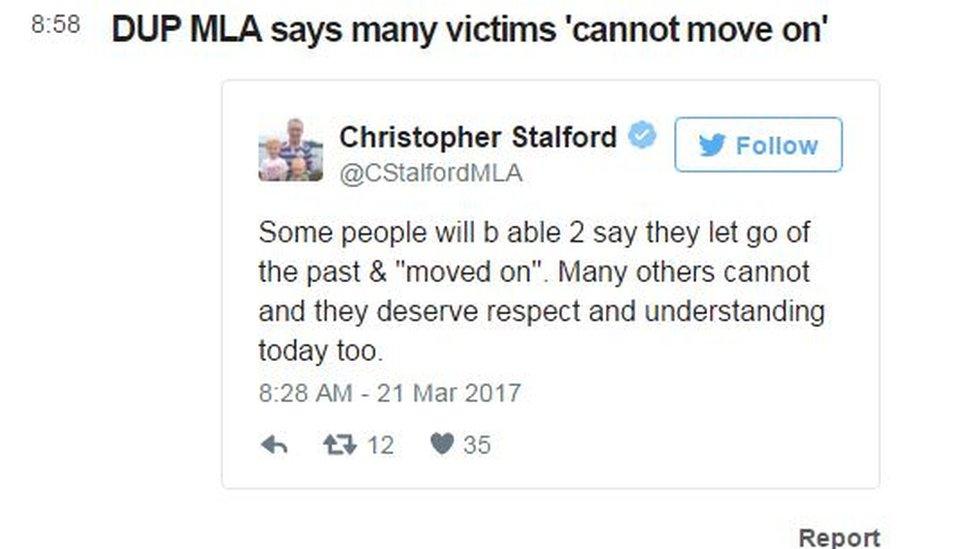
"Twenty-seven years later, we were still looking for her body. They murdered my mother and buried her for so many years.
"The hardest part was not knowing where our mother was. These people took our mother away and these people killed our mother and these people belonged to the IRA."
At the same time, he recognised McGuinness' role in brokering peace.
"Martin McGuinness tried to do a lot for the troubles in Northern Ireland, I will say that about him," he said.
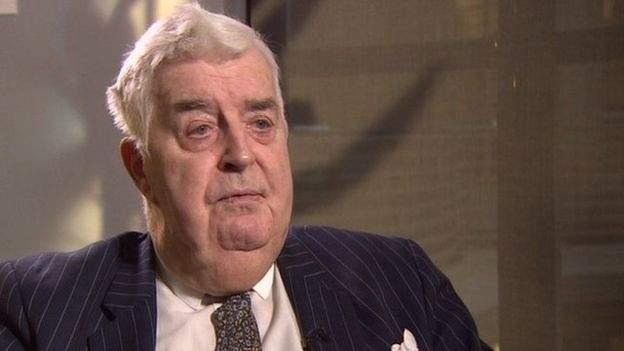
John Taylor, Lord Kilclooney, said Martin McGuinness was a peacemaker
"He tried his best with the politics, I would say that about the man. He went from one extreme to another."
Former Ulster Unionist MP, Lord Kilclooney - John Taylor - who survived a murder attempt by the Official IRA, said: "As a victim of an IRA assassination attempt when I was minister of home affairs in Northern Ireland in 1972, I obviously watched the political progress of Martin McGuinness closely.
"He had an evil past, but became a peacemaker - of that I have no doubt."
"I extend my condolences to his family circle at this time but I look in despair at Sinn Féin for someone with the same leadership qualities as Martin McGuinness".
Alan McBride was clear on his view. Despite his loss in the Shankill bombing, he said Martin McGuinness was pivotal to peace.
Northern Ireland "owes a debt of gratitude" to him, he said.
- Published21 March 2017
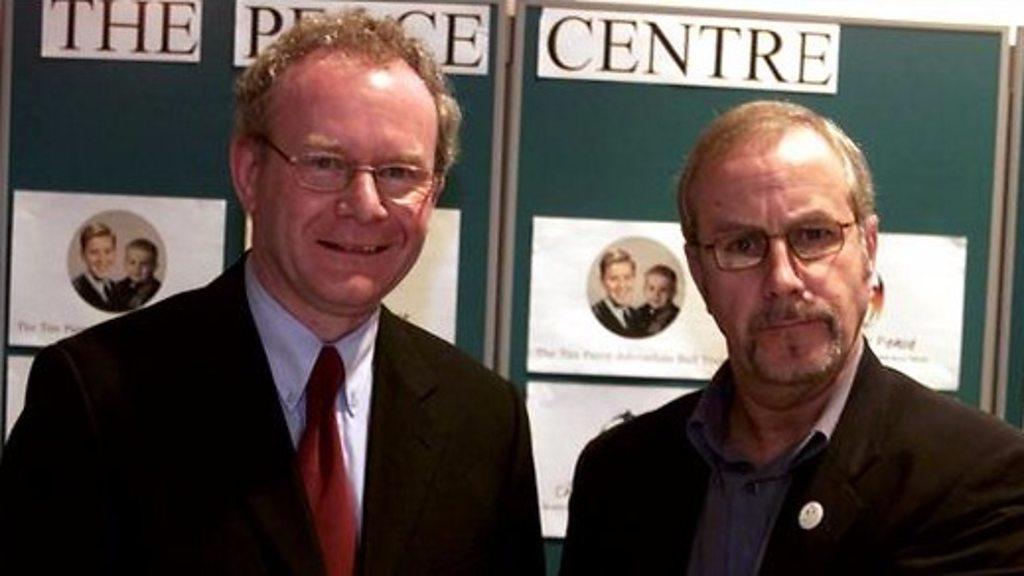
- Published12 October 2014
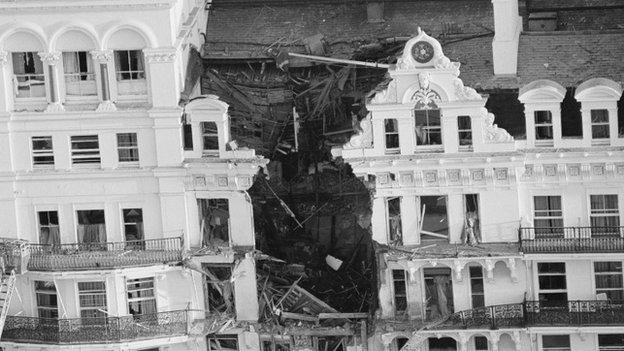
- Published14 October 2019
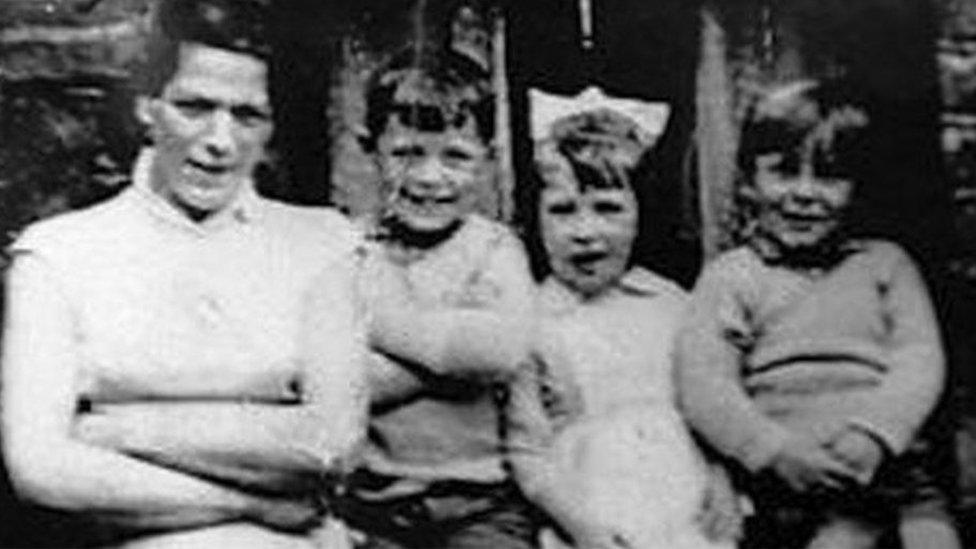
- Published19 March 2013
